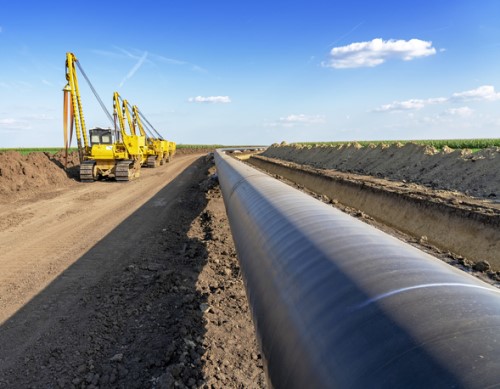SCOTUS Declines DAPL Appeal: What It Means for the Dakota Access Pipeline

The Supreme Court’s decision to decline the DAPL appeal has significant implications for the future of the Dakota Access Pipeline. The Dakota Access Pipeline (DAPL) has been a focal point of controversy since its inception, primarily due to its environmental impact and the opposition from Native American tribes. The recent refusal by the Supreme Court to hear the appeal submitted by the pipeline’s operator marks a critical juncture in this ongoing legal battle. This decision leaves the lower court’s ruling intact, necessitating a more extensive environmental review of the pipeline section that runs under Lake Oahe, a crucial water source for the Standing Rock Sioux Tribe.
With over 7,000 requests for review per year, the Supreme Court of the United States hears only about 100–150 cases annually. The operator of the Dakota Access Pipeline sought to avoid additional environmental scrutiny mandated by a lower court’s decision. However, the Supreme Court’s refusal to hear the DAPL appeal underscores the complexities and challenges involved in the U.S. appeals process. This case also raises broader questions about how often do appeals work and the factors influencing their outcomes.
Background on the Dakota Access Pipeline
Image courtesy of researchgate.net
The Dakota Access Pipeline (DAPL) is a 1,172-mile-long underground oil pipeline that begins in northwest North Dakota and continues through South Dakota and Iowa to an oil terminal in Illinois. Announced to the public in 2014, the pipeline’s construction began in June 2016 and was completed by April 2017, becoming commercially operational on June 1, 2017.
Key stakeholders in the DAPL project include Energy Transfer, the operator of the pipeline, the U.S. Army Corps of Engineers, and the Standing Rock Sioux Tribe. The pipeline has faced strong opposition from Native American tribes and environmental groups due to concerns about its environmental impact. Much of the pipeline runs under land and water sources that Native Americans view as sacred and vital to their daily lives.
Since its inception, the DAPL has been embroiled in legal battles. In 2016, the Standing Rock Sioux Tribe, along with three other Sioux tribes, sued in federal court, arguing that the pipeline could break and permanently harm vital water supplies. Despite these concerns, the U.S. Army Corps of Engineers issued an easement in 2017, permitting the pipeline to cross under portions of the Missouri River. However, in 2020, a U.S. District Court Judge found that the government violated the National Environmental Policy Act and ordered a more detailed environmental impact statement. This decision led to the ongoing legal dispute and the eventual appeal to the Supreme Court.
SCOTUS Decision on the DAPL Appeal
The Supreme Court’s refusal to hear the DAPL appeal has left the lower court’s decision intact, requiring a more comprehensive environmental review. The pipeline’s operator argued that the heightened standard of environmental review could set a precedent that might delay or thwart other national infrastructure projects. They maintained that the pipeline is safe and that additional scrutiny was unnecessary.
On the other hand, the Native American tribes opposed the appeal, asserting that the pipeline should never have been approved without a thorough environmental review. They argued that the pipeline poses significant risks to their water supply and sacred lands. The Supreme Court’s decision not to hear the case means that the lower court’s ruling stands, and the DAPL must undergo the mandated environmental review.
This outcome highlights the challenges involved in the appeals process and raises questions about how often do appeals work in the U.S. legal system. According to statistics, the Supreme Court hears only a small fraction of the appeals submitted each year, making it a rare and significant event when a case is accepted. The refusal to hear the DAPL appeal underscores the importance of thorough environmental assessments and the legal complexities surrounding large infrastructure projects.
Implications of the SCOTUS Decision on the DAPL Appeal
The Supreme Court’s decision to decline the DAPL appeal has far-reaching implications for various stakeholders, particularly the Standing Rock Sioux Tribe and other Indigenous communities. This ruling effectively upholds the lower court’s decision, requiring a more comprehensive environmental review of the Dakota Access Pipeline.
For the Standing Rock Sioux Tribe and other affected Indigenous communities, this decision represents a significant victory in their ongoing struggle to protect their water sources and sacred lands. The required environmental impact statement will provide a more thorough assessment of the pipeline’s potential risks to their water supply and cultural heritage. This outcome underscores the importance of Indigenous voices in infrastructure projects that affect their territories.
From an environmental perspective, the SCOTUS decision reinforces the necessity of rigorous environmental assessments for major infrastructure projects. The mandated review will likely scrutinize the pipeline’s potential impact on water quality, wildlife, and ecosystem health in the affected areas. This could set a precedent for future projects, emphasizing the need for comprehensive environmental studies before approval.
The future of the DAPL remains uncertain as it faces ongoing environmental review. While the pipeline continues to operate during this process, the outcome of the review could potentially lead to modifications in its operations or, in an extreme scenario, a shutdown. This situation highlights the delicate balance between energy infrastructure development and environmental protection, a challenge that will likely persist in future projects.
How Often Do Appeals Work in the US Court System?
Understanding how often appeals work in the U.S. legal system is crucial for contextualizing the DAPL appeal case. The appeals process in the United States is a multi-tiered system designed to review lower court decisions for legal errors or unconstitutional rulings.
Statistically, the success rate of appeals varies depending on the level of the court and the nature of the case. At the federal appellate level, the success rate for appeals is relatively low. According to recent data, only about 7-9% of federal appeals result in a reversal of the lower court’s decision. For cases that reach the Supreme Court, the odds are even slimmer, with the Court agreeing to hear only about 1-2% of the cases presented to it each year.
Several factors influence the outcome of appeals:
- Legal Merit: The strength of the legal arguments presented is paramount. In the DAPL appeal case, the pipeline operator’s arguments were not deemed compelling enough for SCOTUS to review.
- Precedent: Courts often rely on previous rulings in similar cases. The DAPL case may have been considered consistent with existing environmental law precedents.
- National Importance: The Supreme Court tends to take cases that have broad national implications. While the DAPL case is significant, it may not have met the Court’s threshold for national importance.
- Circuit Splits: The Court is more likely to hear cases where different federal circuits have reached conflicting decisions on the same issue.
- Procedural Issues: Sometimes, technical or procedural aspects of how a case was handled in lower courts can influence whether an appeal is heard.
The DAPL appeal’s rejection by SCOTUS illustrates the challenging nature of the appeals process. It underscores that even high-profile cases with significant economic and environmental implications face considerable hurdles in the appellate system. This outcome reinforces the importance of thorough legal preparation and strong arguments at every stage of the legal process, as opportunities for appeal are limited and success rates are relatively low.
Examples of Notable Cases Where Appeals Were Successful
Understanding the dynamics of successful appeals can provide valuable insights into the legal landscape. Here are some notable cases where appeals were successful:
- Gideon v. Wainwright (1963): This landmark case involved Clarence Earl Gideon, who was denied legal counsel during his trial for a felony. Gideon appealed to the Supreme Court, which unanimously ruled that the Sixth Amendment guarantees the right to legal counsel for all defendants in criminal cases. This decision significantly expanded public defender systems across the United States.
- Brown v. Board of Education (1954): This case overturned the “separate but equal” doctrine established by Plessy v. Ferguson. The Supreme Court ruled that racially segregated public schools violated the Equal Protection Clause of the Fourteenth Amendment. This decision was a pivotal moment in the Civil Rights Movement, leading to desegregation across the country.
- Miranda v. Arizona (1966): Ernesto Miranda’s conviction was overturned by the Supreme Court because he was not informed of his rights to remain silent and to an attorney. This case established the “Miranda rights,” which law enforcement must inform suspects of before interrogation.
Analysis of What Made These Appeals Work
Several factors contributed to the success of these appeals:
- Constitutional Violations: Each case involved significant constitutional issues. In Gideon, the right to counsel was at stake. In Brown, it was the right to equal protection under the law. In Miranda, it was the right against self-incrimination and the right to counsel.
- National Importance: These cases had broad implications beyond the individual litigants. They addressed systemic issues affecting large segments of the population.
- Strong Legal Advocacy: Effective legal representation and well-argued briefs played crucial roles. The attorneys in these cases were able to persuasively argue that the lower court’s decisions violated fundamental rights.
- Precedent Setting: These cases set new legal precedents, which the Supreme Court is more likely to consider. They involved interpretations of constitutional rights that had far-reaching consequences.
Challenges in the Appeals Process
Navigating the appeals process can be fraught with challenges. Common hurdles include:
- High Burden of Proof: The appellant must demonstrate that a significant legal error occurred in the trial court. This is often a high bar to meet.
- Limited Scope of Review: Appeals courts do not retry cases or hear new evidence. They only review the trial court’s application of the law, which can limit the grounds for appeal.
- Procedural Complexities: The appeals process involves strict procedural rules and deadlines. Missing a filing deadline or failing to follow proper procedures can result in the dismissal of an appeal.
- Cost and Time: Appeals can be expensive and time-consuming. The costs of legal representation, preparing briefs, and potentially presenting oral arguments can be prohibitive for many litigants.
Legal and Procedural Complexities
- Brief Writing: Crafting a compelling appellate brief requires a profound understanding of legal principles and precedents. The brief must persuasively argue why the trial court’s decision should be reversed or modified.
- Oral Arguments: If the court grants oral arguments, attorneys must be prepared to answer judges’ questions and clarify points from their briefs. This requires thorough preparation and the ability to think quickly on one’s feet.
- Panel Decisions: Appeals are typically decided by a panel of judges. This means that the outcome can depend on the judges’ interpretations of the law and their judicial philosophies.
Conclusion
The Supreme Court’s decision to decline the DAPL appeal has significant implications for the Dakota Access Pipeline and the Standing Rock Sioux Tribe. It underscores the need for thorough environmental reviews and highlights the complexities of the appeals process. Successful appeals often hinge on constitutional issues, national importance, and strong legal advocacy.
The SCOTUS decision requires a more comprehensive environmental review of the DAPL, marking a victory for the Standing Rock Sioux Tribe. This case emphasizes the importance of rigorous environmental assessments and the challenges involved in appealing court decisions.
Stay informed and engaged as this case evolves. For more information or legal concerns, contact McKirdy, Riskin, Olson & DellaPelle, P.C. for a free consultation with an experienced attorney. Advocate for justice and environmental protection.








